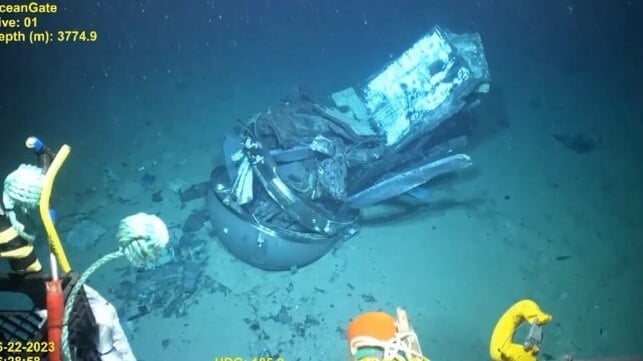U.S. Coast Guard Releases Audio of Lost Submersible's Implosion

For the first time, the U.S. Coast Guard has released audio from the implosion of the submersible Titan, which was lost during a dive at the Titanic wreck site in the North Atlantic in 2023. Four paying "mission specialists" and the operating company's CEO died in the implosion, making it the first fatal accident in five decades in a deep-diving manned submersible.
The Coast Guard believes that the craft's experimental carbon hull imploded rapidly, with little or no warning. A NOAA acoustic buoy captured the sound of the underwater blast from miles away - one of the first hints that the dive had ended in tragedy.
According to evidence uncovered by an ongoing Marine Board of Investigation inquiry, the Titan accumulated a long list of safety issues in the years leading up to the casualty. The sub (and an earlier prototype hull) partially sank at the pier, ran out of battery power while submerged, lost its forward dome during a recovery, and failed to drop weights on multiple occasions.
Former Oceangate employees testified that co-founder and CEO Richard Stockton Rush III chose not to pursue classification or a Coast Guard Certificate of Inspection (COI) for the novel design, despite repeated warnings from third-party engineering consultants and his own staff. Rush was aware of the experimental nature of Oceangate's commercially-operated vessel: before the disaster that claimed his life, he told a conference audience that "when you're outside the box, it's hard to tell how really far outside the box you are," adding that Oceangate was "pretty far out there."
"These [conventional] research subs that are out there, they were never meant to make money. They were meant to get out there and do cool stuff," Rush told the audience. "[Sub certification programs] are over the top in their rules and regulations."
